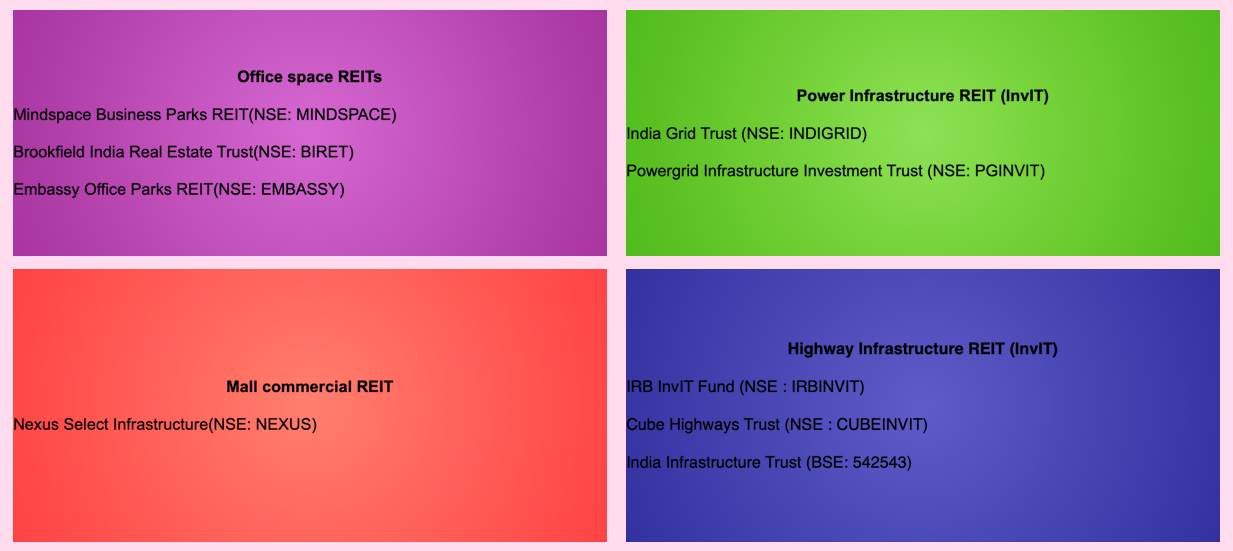
There is more to Real Estate than homes!
25th Feb 2024Most average investors in India can only think of residential property when they think of real estate, which we discussed earlier.
When capital and land are readily available, we do find small shops being built and rented out to Kiranas or small businesses such as bakeries or saloons. More often than not, these constructions are not legal since it is quite difficult for individuals to get the required permits to convert residential, agricultural or industrial land into commercial space.
The best way for retail investors to get a piece of the thriving commercial (malls) and office space (tech parks) market is to invest through Real Estate Investment Trusts (REITs).
Over the last 3-4 years, multiple REITs focused of renting office space to the booming technology companies in India have been listed in the stock market. Because these are listed and trade with decent volumes, you can easily sell these similar to a stock at any time, making it much better than investing in real estate directly.

The SEBI has strictly regulated these investments, where 90% of their rental income HAS to be distributed as dividend to investors. Like rental income from residential property, we get about 5% return as dividend income from Office REITS and 7%-8% from Infrastructure REITS. We also get capital appreciation since the REIT Management companies use the 10% revenue and additional borrowings to invest in new real-estate or infrastructure further growing the value of the REITs and InVITs.
It is usually recommended to have anywhere from 5%-15% of the portfolio invested in REITs INVITs due to the regular dividend income and low volatility compared to stocks investments.